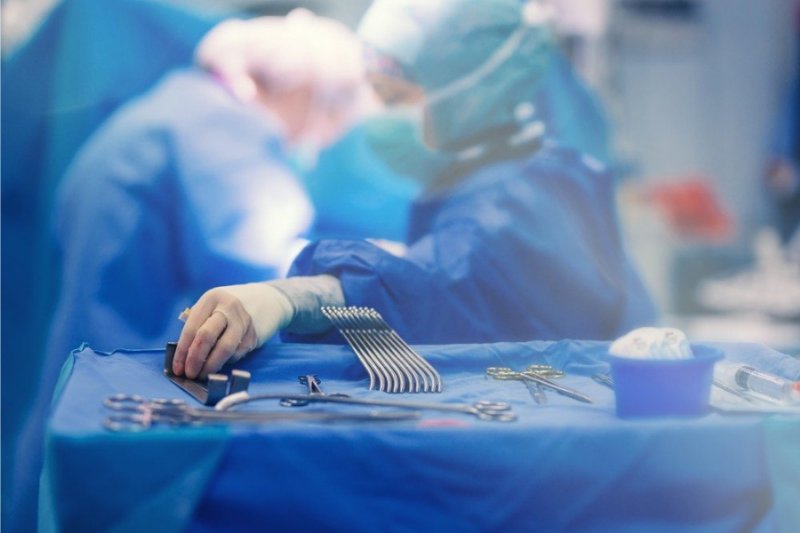CVOR Techs: The Heart of Surgical Excellence in Healthcare
In the intricate world of healthcare, there’s a group of unsung heroes who work diligently behind the scenes, ensuring that surgical procedures run seamlessly. These healthcare professionals are known as CVOR Techs, short for Cardiovascular Operating Room Technicians. Their role is pivotal in the cardiac operating room, contributing to the successful outcomes of countless heart surgeries. In this comprehensive article, we’ll dive deep into the world of CVOR Techs, exploring their responsibilities, training, and the crucial role they play in modern healthcare.
What is a CVOR Tech?
Before we delve into the intricacies of a CVOR Tech’s responsibilities, let’s clarify what this specialized healthcare professional actually does.
CVOR Techs are essential members of the surgical team in cardiac operating rooms. They are trained to assist surgeons in cardiovascular surgery such coronary artery bypass grafting, heart valve repair/replacement, and heart transplants. Cardiovascular surgeons, nurses, anesthesiologists, and other medical professionals work with these technicians to ensure surgical safety.
Below, we’ll discuss their many duties.
The Responsibilities of a CVOR Tech
Preparing the Operating Room: One of the primary duties of a CVOR Tech is to ensure that the operating room is set up correctly before the surgery. This includes arranging and sterilizing surgical instruments, preparing the patient’s surgical site, and checking equipment for functionality.
Assisting During Surgery: CVOR Techs play a crucial role during surgery. They pass instruments to the surgeon, hold retractors, and assist with suturing. Their help lets the surgeon concentrate on the process, improving speed and safety.
Sterility: The operating area must be sterile to avoid infections. CVOR Techs are responsible for maintaining sterile conditions throughout the surgery, which includes handing sterile equipment to the surgeon and monitoring the surgical field.
Equipment Management: These professionals are well-versed in operating and troubleshooting various surgical equipment, such as heart-lung machines, bypass pumps, and monitors. Their expertise ensures that the equipment functions flawlessly during surgery.
Patient Care: CVOR Techs also provide care to the patient before, during, and after surgery. This includes monitoring vital signs, administering medications as directed, and assisting with the transfer of the patient to the recovery area.
Training and Education
To become a proficient CVOR Tech, individuals typically follow a structured path of education and training:
Education: Start with a high school diploma. Candidates then participate in a CAAHEP or ABHES-accredited surgical technology program.
Certification: After completing their educational program, aspiring CVOR Techs often pursue certification. The most widely recognized certification for surgical technologists is the Certified Surgical Technologist (CST) credential offered by the National Board of Surgical Technology and Surgical Assisting (NBSTSA).
Specialization: Some CVOR Techs choose to specialize further by pursuing additional certifications specifically tailored to cardiovascular surgery, such as the Certified Cardiac Surgical Technologist (CCST) credential.
Clinical Experience: Hands-on experience in a clinical setting is invaluable for CVOR Techs. Many programs include clinical rotations where students work directly in operating rooms under the guidance of experienced professionals.
Continuing Education: Healthcare is constantly evolving, so CVOR Techs must engage in ongoing education to stay current with advancements in surgical techniques and technology.
The Crucial Role of CVOR Techs in Modern Healthcare
The importance of CVOR Techs in modern healthcare cannot be overstated. They are an integral part of the surgical team, contributing to the success of complex cardiovascular procedures. Here are a few reasons why CVOR Techs are indispensable:
Enhanced Patient Safety: CVOR Techs’ attention to detail and dedication to maintaining a sterile environment significantly reduce the risk of surgical complications and infections, ultimately ensuring the safety of the patient.
Efficiency: By efficiently managing surgical instruments and equipment, CVOR Techs enable surgeons to focus on the procedure itself, leading to shorter surgery times and quicker patient recovery.
Expertise in Cardiovascular Procedures: CVOR Techs specialize in cardiovascular surgeries, which demand a high level of skill and knowledge. Their expertise in this area is vital for achieving optimal surgical outcomes.
Team Collaboration: Effective collaboration with other healthcare professionals is essential during surgeries. CVOR Techs excel in teamwork, contributing to a harmonious and productive surgical environment.
Emergency Response: In the high-pressure environment of a cardiac operating room, unexpected complications can arise. CVOR Techs are trained to respond swiftly and effectively to emergencies, potentially saving lives.
Job Settings
CVOR Techs primarily work in hospitals, particularly in the cardiovascular operating rooms. These specialized professionals can be found in various healthcare settings, including:
Cardiac Surgery Departments: Most CVOR Techs are employed in cardiac surgery departments within hospitals, where they assist with a wide range of cardiovascular procedures.
Specialized Heart Centers: Some CVOR Techs work in specialized heart centers or cardiovascular hospitals that exclusively focus on heart-related surgeries and treatments.
Academic Medical Centers: Academic medical centers often employ CVOR Techs for their role in surgical education and research, where they assist in cutting-edge cardiac procedures and contribute to the training of future healthcare professionals.
Outpatient Surgical Centers: In some cases, CVOR Techs may find employment in outpatient surgical centers that perform less complex cardiovascular procedures.
Job Duties and Responsibilities
In addition to the core responsibilities mentioned earlier, CVOR Techs may also perform the following tasks:
Patient education: Informing patients on what to anticipate during surgery, addressing their worries, and assisting them in psychologically and physically preparing for the procedure.
Equipment upkeep: Ensuring that every piece of surgical gear, particularly specific cardiac gear, is well-maintained and ready for action.
Recording all surgical procedures, patient care, and surgical complications.
Teamwork with surgeons, nurses, anesthesiologists, and other medical professionals to ensure efficient communication and patient care.
Job Outlook
The job outlook for CVOR Techs is generally positive, and demand for their specialized skills is expected to remain steady in the coming years. Several factors contribute to this outlook:
Aging Population: As the population ages, the need for cardiovascular surgeries is likely to increase, driving demand for CVOR Techs.
Advancements in Cardiovascular Medicine: Ongoing advancements in cardiovascular medicine and surgical techniques will continue to require skilled professionals to assist in complex procedures.
Healthcare Expansion: The expansion of healthcare services, particularly in areas with growing populations, will create job opportunities for CVOR Techs in both urban and rural settings.
Career Advancements
CVOR Techs can explore various avenues for career advancement and professional growth:
Lead CVOR Tech: Experienced CVOR Techs may take on leadership roles within their surgical teams, overseeing the work of others and ensuring the efficient functioning of the cardiovascular operating room.
Instructor or Educator: Some CVOR Techs transition into teaching roles, educating aspiring surgical technologists and students in healthcare programs.
Supervisor or Manager: With additional education and experience, CVOR Techs can advance to supervisory or management positions within surgical departments.
Specialized Roles: CVOR Techs may choose to specialize further in specific aspects of cardiovascular surgery, such as heart transplant procedures or minimally invasive techniques.
Research and Development: Opportunities exist for CVOR Techs to contribute to research and development in the field of cardiovascular surgery, working with medical device companies or research institutions.
People Also Ask FAQs
1. What does CVOR stand for?
CVOR stands for Cardiovascular Operating Room.
2. What is a CVOR Tech, and what do they do?
A CVOR Tech, or Cardiovascular Operating Room Technician, is a healthcare professional who plays a crucial role in cardiac operating rooms. They assist surgeons during cardiovascular surgeries, maintain sterile conditions, manage surgical equipment, and provide patient care.
3. What are the primary responsibilities of a CVOR Tech?
The primary responsibilities of a CVOR Tech include preparing the operating room, assisting during surgery, maintaining sterility, managing surgical equipment, and providing patient care.
4. How does one become a CVOR Tech?
To become a CVOR Tech, individuals typically start with a high school diploma, enroll in a CAAHEP or ABHES-accredited surgical technology program, pursue certification (e.g., CST), gain clinical experience, and engage in continuing education.
5. Are there specialized certifications for CVOR Techs?
Yes, some CVOR Techs choose to specialize further by obtaining certifications specifically tailored to cardiovascular surgery, such as the Certified Cardiac Surgical Technologist (CCST) credential.
6. What is the importance of CVOR Techs in modern healthcare?
CVOR Techs are indispensable in modern healthcare because they enhance patient safety, improve surgical efficiency, possess expertise in cardiovascular procedures, excel in teamwork, and are trained to respond to emergencies in the cardiac operating room.
7. Where do CVOR Techs typically work?
CVOR Techs primarily work in hospitals, especially in cardiovascular operating rooms. They can also be found in specialized heart centers, academic medical centers, and outpatient surgical centers.
8. What are some additional duties of CVOR Techs?
In addition to their core responsibilities, CVOR Techs may educate patients, ensure equipment upkeep, maintain records, and collaborate closely with other medical professionals in the surgical team.
9. What is the job outlook for CVOR Techs?
The job outlook for CVOR Techs is generally positive, with steady demand expected due to factors like an aging population, advancements in cardiovascular medicine, and healthcare expansion.
10. What career advancement opportunities are available for CVOR Techs?
– CVOR Techs can advance their careers by becoming lead CVOR Techs, instructors or educators, supervisors or managers, pursuing specialized roles, or contributing to research and development in cardiovascular surgery.
Final Words
CVOR Techs, or Cardiovascular Operating Room Technicians, are indeed the unsung heroes of healthcare, working diligently behind the scenes to ensure the success of complex cardiac surgeries. Their multifaceted responsibilities, including maintaining sterility, managing surgical equipment, and providing patient care, make them invaluable members of the surgical team. As healthcare continues to evolve, the expertise and dedication of CVOR Techs will remain essential for achieving optimal patient outcomes in cardiovascular surgery. Their commitment to enhancing safety, efficiency, and teamwork in the operating room exemplifies their crucial role in modern healthcare. If you have any more questions or would like to learn further about CVOR Techs, please don’t hesitate to ask.
Stay in touch to get more updates & alerts on Hint! Thank you







